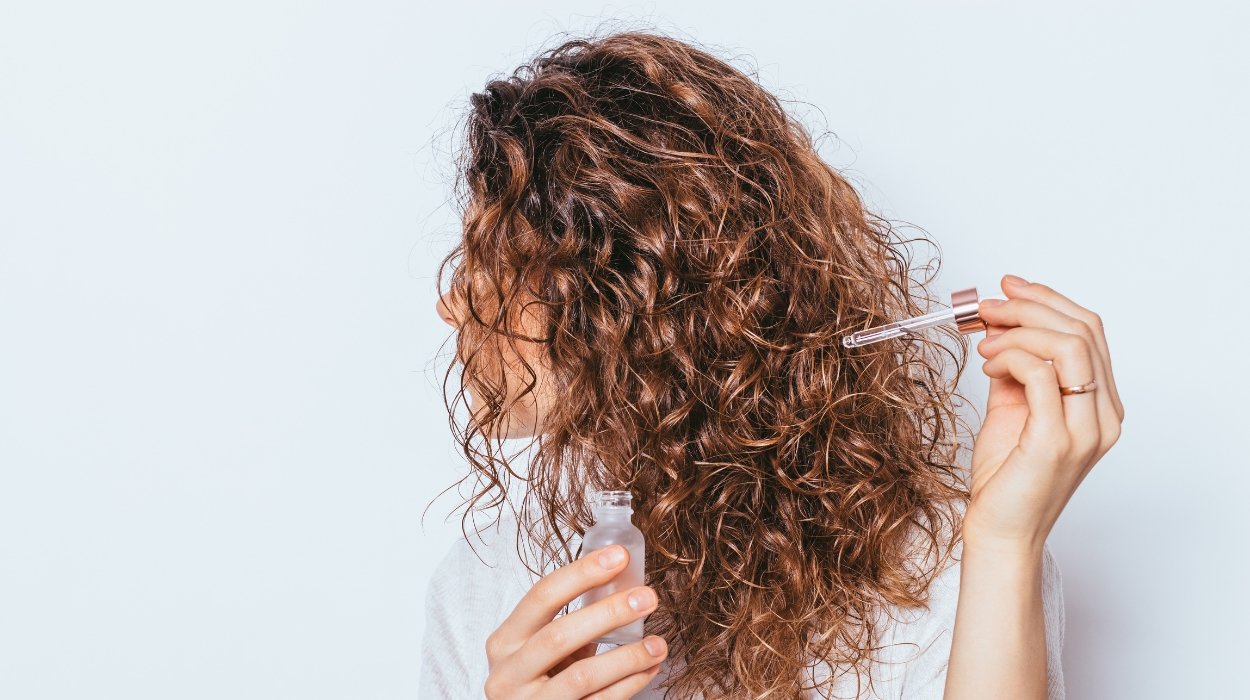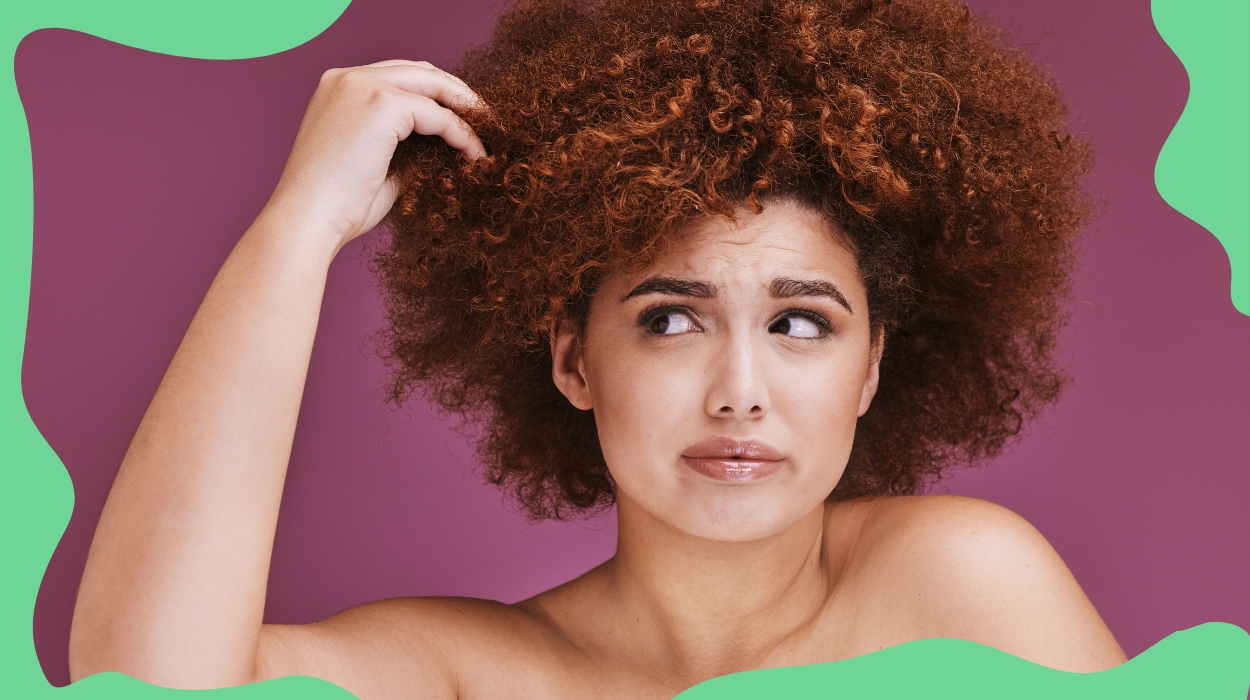Frizzy hair can be a frustrating and overwhelming problem for many people. It can make your locks look unruly, untamed, and challenging to manage. However, with the proper knowledge and techniques, you can easily tame your frizzy hair and achieve smooth, sleek locks. In this article, we will explore the best home remedies and tips to help you get rid of frizzy hair. Whether you have straight hair or curly hair, you can apply these tips.
How Do You Get Rid of Frizzy Hair?
Frizzy hair can be frustrating to manage. Learn four practical tips to tame your frizz and additional home remedies to prevent frizzy hair. You’ll also learn the answers to common questions and concerns about frizzy hair, including whether hair becomes frizzier with age. By following these tips and incorporating them into your hair care routine, you can achieve the smooth, manageable hair that you’ve always desired.
Frizzy Hair Comes in a Variety of Types
Frizzy hair is not a one-size-fits-all problem. It comes in different types, and understanding your hair type is crucial in finding the most effective solutions. The most common types of frizzy hair are dry frizz and humidity-induced frizz.
Dry frizz occurs when your hair lacks moisture and essential oils. This type of frizz is often caused by external factors such as heat styling, excessive shampooing, and harsh hair products. On the other hand, humidity-induced frizz is caused by moisture in the air that penetrates the hair shaft and disrupts the hair’s natural structure. This type of frizz is more prevalent in people with curly hair.
How to Get Rid of Frizzy Hair: Best Tips 2024

You can reduce hair frizz by adjusting a few elements of your daily routine, such as how you style and dry your hair. These home remedies for frizzy hair can provide rapid relief with minimal effort!
Reduce Heat
Excessive heat styling is one of the major culprits behind frizzy hair. The high temperatures from hair dryers, curling irons, and straighteners can strip hair of its natural oils, leaving it dry and prone to frizziness. To reduce frizz, minimizing heat styling as much as possible is essential. Embrace your hair’s natural texture and opt for heat-free hairstyles.
When you do use heat styling tools, make sure to apply a heat protectant spray or serum beforehand. This will create a protective barrier and minimize damage to your hair. Additionally, always use the lowest heat setting and avoid lengthy heat exposure.
Dry Your Wet Hair Properly
How you dry your hair plays a significant role in preventing frizz. Rubbing your wet hair too vigorously with a towel can roughen the hair cuticles and lead to frizz. Instead, gently squeeze out excess water from your hair using a microfiber towel to absorb moisture without causing friction.
Consider a Silk Pillowcase
The type of pillowcase you sleep on could make a difference in the appearance of your hair. Cotton pillowcases can cause friction and breakage, resulting in frizz. Wearing your hair in a ponytail, a bun, or a braid while you sleep can also exacerbate breakage. This nocturnal traction can even result in a condition known as traction alopecia — hair loss caused by damage due to pulling or friction.
Though researchers have not conducted empirical research in this area, silk pillowcases could help relieve nocturnal traction. Because they are smooth and gentler on your hair, they could reduce friction and pull on your hair follicles and thus reduce breakage and frizz.
Trim Your Hair Regularly
Split ends and damaged hair strands give your hair a frizzier appearance, as they have a rougher texture and are more likely to tangle. By getting rid of these damaged ends regularly via regular haircuts, you can prevent frizz from spreading further up the hair shaft.
Make it a habit to trim your hair every six to eight weeks, depending on your hair’s condition and growth rate.
Certain Products Can Help Prevent Frizzy Hair

Certain products can help prevent the damage and humidity that causes frizz. From hair masks to utilizing the proper brushes, you can reduce frizz using these simple tips. By utilizing prevention, you can learn how to get rid of frizzy hair permanently.
Using Hair Mask
Incorporating a weekly hair mask into your routine can help reduce the occurrence of frizz. Hair masks are designed to help nourish and hydrate dry hair, providing it with the essential nutrients it needs to stay healthy and frizz-free. Some common hair mask ingredients, such as keratin, can actively improve hair health to reduce frizzy appearance.
Use a Wide-Tooth Comb
Using the right tools can make a significant difference in managing frizzy hair. A wide-tooth comb is the best choice for detangling and styling your hair without causing further damage or frizz. Unlike brushes with fine bristles, wide-tooth combs detangle hair more smoothly, reducing the risk of breakage and frizz.
When combing your hair, start from the ends and work your way up to the roots. This will prevent tugging and pulling, minimizing damage and frizz. Additionally, avoid combing your hair when it is wet, as wet hair is more susceptible to breakage. Let your hair air dry before brushing for the best results.
Use Sulfate-Free Shampoo
The products you use on your hair can significantly impact its frizz levels. Traditional shampoos often contain sulfates, harsh detergents used to cleanse your hair. However, these sulfates strip your hair of natural oils. This can leave your hair brittle, dry, and prone to frizz. Switching to a gentler sulfate-free shampoo can help tame frizzy hair.
Use Coconut Oil or Anti-Frizz Serum
When it comes to combating frizz, natural remedies can be highly effective. Coconut oil is a popular choice for taming frizzy hair due to its moisturizing and nourishing properties. It helps restore moisture balance in your hair, reducing dry hair and frizz. It can also help lock out external humidity to prevent humidity-induced frizzy hair.
Apply a small amount of coconut oil to your hair, focusing on the mid-lengths and ends. Leave it on for a few hours or overnight, and then wash it out with a gentle shampoo.
If coconut oil is not readily available, you can also opt for an anti-frizz serum. These serums are specifically designed to combat frizz and create a smooth, polished finish. However, more empirical research is needed on their efficacy as they often contain different combinations of ingredients. You should choose serums containing proven ingredients such as keratin.
Does Hair Become Frizzier With Age?
As we age, various factors can contribute to changes in our hair, including increased frizz. Aging hair tends to become drier, thinner, and more susceptible to frizz. This is primarily due to a decrease in the production of hair’s natural oils by the scalp, which results in decreased moisture levels in the hair.
Additionally, hormonal changes that occur with age can affect the hair’s texture and behavior. For example, the decrease in estrogen levels during menopause can lead to a decrease in hair thickness and an increase in frizz.
However, people of all ages can experience frizz due to various factors such as genetics, hair care practices, and environmental conditions.
Conclusion
Taming frizzy hair may seem like an uphill battle, but you can achieve smooth, manageable locks with the right techniques and products. By understanding the different types of frizzy hair and addressing the underlying causes, you can effectively combat frizz and enjoy the hair you’ve always desired. Incorporating the tips mentioned in this article, such as reducing heat, drying your hair correctly, using the right tools, and applying nourishing treatments, can make a significant difference in achieving frizz-free hair.
Frequently Asked Questions
Frizzy hair is certainly frustrating. Thankfully you can utilize these tips to tame your frizz. These common questions can help you learn more about reducing frizz and improving your hair’s health.
While it’s not possible to completely eliminate frizz in just five minutes, there are a few quick fixes you can try. Applying a small amount of anti-frizz serum or hair oil can help smooth down the frizz and give your hair a more polished look. Additionally, using a wide-tooth comb to detangle your hair and gently patting it with a microfiber towel can help reduce frizz temporarily.
Getting rid of frizzy hair permanently requires a consistent hair care routine and taking steps to address the underlying causes of frizz. Following the tips mentioned in this article, such as reducing heat, drying your hair properly, and using nourishing treatments, can help manage frizz in the long term. Additionally, maintaining a healthy lifestyle, eating a balanced diet, and staying hydrated can promote overall hair health and reduce frizz.
Wet hair is more vulnerable to damage and frizz due to its increased porosity. When wet, the hair cuticles are open, making them more susceptible to frizz-causing factors such as humidity and rough towel drying. To prevent frizz, it’s important to handle wet hair gently and avoid excessive rubbing or heat exposure.
Hair cuticles are the outermost layer of the hair shaft, consisting of overlapping cells that resemble shingles on a roof. When the hair cuticles are smooth and lie flat, the hair appears shiny and healthy. However, when the cuticles are raised or damaged, the hair becomes more prone to frizz. Factors such as heat styling, chemical treatments, and rough handling can disrupt the hair cuticles and lead to frizz.
Yes, frizzy hair can be genetic. The texture and behavior of your hair are determined by your genetic makeup. If your parents or close relatives have frizzy hair, there is a higher chance that you may also have frizzy hair. However, genetics is not the sole determining factor, and frizz can also be influenced by environmental factors, hair care practices, and lifestyle choices.
